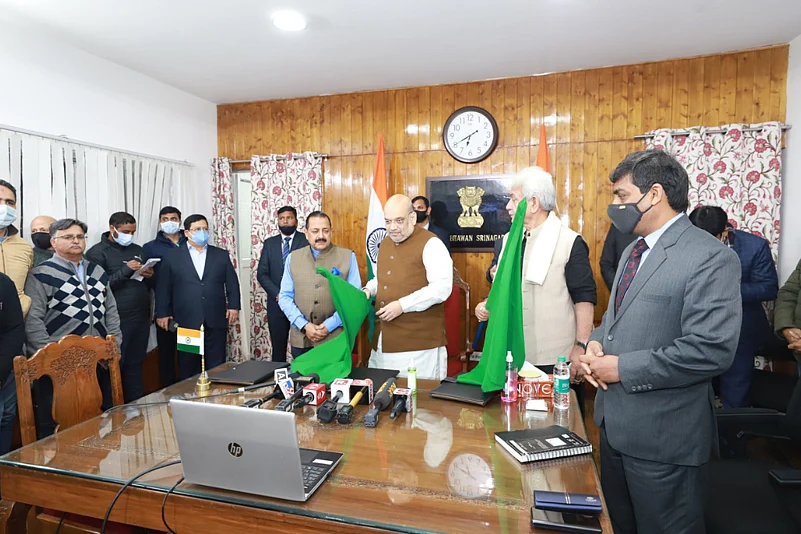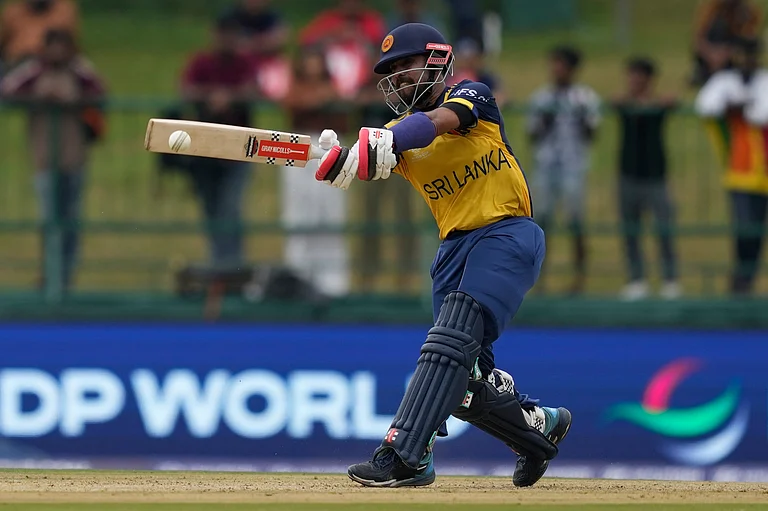Jammu and Kashmir’s statehood will be restored after delimitation of constituencies followed by assembly elections, Union home minister Amit Shah said on Friday, laying out what he called the “roadmap” for the militancy-hit state.
This is Shah’s first visit to Jammu and Kashmir after the state was stripped of its special status and bifurcated in 2019 by the Narendra Modi government. Shah is on a three-day trip.
“There will be delimitation. After that, there will be elections, and after that statehood will be restored. I have stated it in Parliament. And this is the roadmap,” Shah said at a youth club in Srinagar where he reviewed security arrangements in the Valley in the wake of a spate of militant attacks targeting minority communities.
Referring to the abrogation of Article 370, he said that August 5, 2019, will be written in golden letters. “On that day new beginning started in Kashmir with an end of terrorism, fear, dynastic rule and beginning of peace and development,” he added. “Youths here say they got an opportunity. A lot of developmental works started. Earlier lot of funds were coming for Kashmir. And it should come. Kashmir has suffered a lot. But a day will come when Kashmir contributes to the development of the country. We will make J&K such a state that will not be dependent on the funds of the Centre. This is our goal,” he added.
“Before August 5, 2019, the youth of Kashmir wouldn’t have thought of becoming home minister or prime minister of the country. In 70 years of democracy, Kashmir has got 87 MLAs, six parliament seats, and three families to rule J&K. I don’t want to name the families. Modi ji gave 30,000 elected representatives in a short span of time,” he said, referring to elected panchayat members.
Though Shah didn’t take any names, it was anybody’s guess who he was referring to when he said, “Those who are shouting today are those who know democracy has come out of three families and have reached the houses of poor.”
He added that after Independence, Jammu and Kashmir is only the state that has got huge funds per head from the Centre but still the state didn’t get independence from poverty. “Unemployment didn’t go, infrastructure development didn’t happen. Infrastructure has now increased, poverty is now on its way out and employment has now increased,” he said.
“Even for studies, people here would go to Pakistan. But we have given seven new medical colleges, 11 nursing colleges. Jammu and Kashmir youth doesn’t need to go out of J&K to become doctors,” he said. “In 70 years, there were only 500 MBBS seats. We have given 1,100 seats. Here we got AIIMS, IITs and other colleges. Why it didn’t happen in 70 years?” the home minister asked.
Shah said there were apprehension that militancy will increase after abrogation of Article 370 but said statistics show a different picture. Between 2004 to 2014, a total of 2,081 civilians were killed, which is 208 people every year. But between 2014 to 2021, only 30 civilians have died every year which shows that militancy has reduced and stone-pelting has disappeared.
“I assure you that all the elements trying to disrupt peace in Jammu and Kashmir will be given a proper response and no one will be given a chance to act as a hurdle in the prosperity of the region and we are committed to it,” he added.
He said that 40,000 individuals have lost their lives so far in Jammu and Kashmir, including security forces, civilians, and militants. "Terrorism and development cannot go hand in hand. The first condition of development is that there has to be peace here," he added.
On the tourism industry, he said that 36,400 tourists visited Jammu and Kashmir in 2020, while it took a huge jump and a total of 1,13,000 tourists arrived in 2021.


























